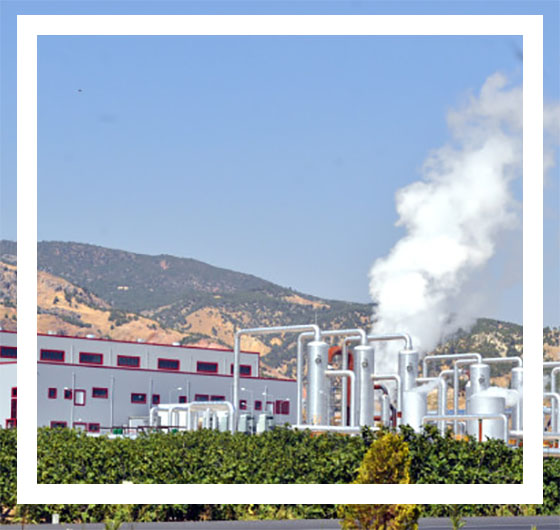Ethical Principles
1. HONESTY. Ethical executives are honest and truthful in all their dealings and they do not deliberately mislead or deceive others by misrepresentations, overstatements, partial truths, selective omissions, or any other means.
2. INTEGRITY. Ethical executives demonstrate personal integrity and the courage of their convictions by doing what they think is right even when there is great pressure to do otherwise; they are principled, honorable and upright; they will fight for their beliefs. They will not sacrifice principle for expediency, be hypocritical, or unscrupulous.
3. PROMISE-KEEPING & TRUSTWORTHINESS. Ethical executives are worthy of trust. They are candid and forthcoming in supplying relevant information and correcting misapprehensions of fact, and they make every reasonable effort to fulfill the letter and spirit of their promises and commitments. They do not interpret agreements in an unreasonably technical or legalistic manner in order to rationalize non-compliance or create justifications for escaping their commitments.
4. LOYALTY. Ethical executives are worthy of trust, demonstrate fidelity and loyalty to persons and institutions by friendship in adversity, support and devotion to duty; they do not use or disclose information learned in confidence for personal advantage. They safeguard the ability to make independent professional judgments by scrupulously avoiding undue influences and conflicts of interest. They are loyal to their companies and colleagues and if they decide to accept other employment, they provide reasonable notice, respect the proprietary information of their former employer, and refuse to engage in any activities that take undue advantage of their previous positions.
5. FAIRNESS. Ethical executives and fair and just in all dealings; they do not exercise power arbitrarily, and do not use overreaching nor indecent means to gain or maintain any advantage nor take undue advantage of another’s mistakes or difficulties. Fair persons manifest a commitment to justice, the equal treatment of individuals, tolerance for and acceptance of diversity, the they are open-minded; they are willing to admit they are wrong and, where appropriate, change their positions and beliefs.
6. CONCERN FOR OTHERS. Ethical executives are caring, compassionate, benevolent and kind; they like the Golden Rule, help those in need, and seek to accomplish their business objectives in a manner that causes the least harm and the greatest positive good.
7. RESPECT FOR OTHERS. Ethical executives demonstrate respect for the human dignity, autonomy, privacy, rights, and interests of all those who have a stake in their decisions; they are courteous and treat all people with equal respect and dignity regardless of sex, race or national origin.
8. LAW ABIDING. Ethical executives abide by laws, rules and regulations relating to their business activities.
9. COMMITMENT TO EXCELLENCE. Ethical executives pursue excellence in performing their duties, are well informed and prepared, and constantly endeavor to increase their proficiency in all areas of responsibility.
10. LEADERSHIP. Ethical executives are conscious of the responsibilities and opportunities of their position of leadership and seek to be positive ethical role models by their own conduct and by helping to create an environment in which principled reasoning and ethical decision making are highly prized.
11. REPUTATION AND MORALE. Ethical executives seek to protect and build the company’s good reputation and the morale of its employees by engaging in no conduct that might undermine respect and by taking whatever actions are necessary to correct or prevent inappropriate conduct of others.
12. ACCOUNTABILITY. Ethical executives acknowledge and accept personal accountability for the ethical quality of their decisions and omissions to themselves, their colleagues, their companies, and their communities.
Figures
Kucuk Menderes Enerji A.S.
in Numbers

35
MWe Geothermal
2
MWe Solar
3.6
MWe WindGo Green, Go Geothermal, Solar & Wind!
Ecology Is Your Best
Investment
Green energy is a hot topic in a world concerned about climate change. Power generation that doesn’t rely on the burning of fossil fuels to generate electricity for our homes or industries is creating a growing number of investment opportunities. Water, wind and solar are among the top sources of renewable energy.


Renewable Energy
BENEFITS OF USING GEOTHERMAL ENERGY
- First, it’s clean. Energy can be extracted without burning a fossil fuel such as coal, gas, or oil. Geothermal fields produce only about one-sixth of the carbon dioxide that a relatively clean natural-gas-fueled power plant produces, and very little if any, of the nitrous oxide or sulfur-bearing gases. Binary plants, which are closed cycle operations, release essentially no emissions.
- Geothermal energy is available 24 hours a day, 365 days a year. Geothermal power plants have average availabilities of 90% or higher, compared to about 75% for coal plants.
- Geothermal power is homegrown, reducing our dependence on foreign oil.

Is Geothermal Energy harmful?
Geothermal energy has the smallest land footprint of any comparable energy source in the world. Direct use applications and geothermal heat pumps have almost no negative effects on the environment. In fact, they can have a positive effect by reducing the use of energy sources that may have negative effects on the environment.

Does generating electrical power from geothermal sources causes pollution?
Electrical power does not, by its nature, create pollution. Modern closed-loop geothermal power plants used to generate electrical power do not emit greenhouse gases. Additionally, they consume less water on average than most conventional power generation technologies.

Can we run out of geothermal energy?
It is a renewable energy and will never deplete. Abundant geothermal energy will be available for as long as the Earth exists. Worldwide energy consumption is currently around 15 terawatts, which is far from the total potential energy available from geothermal sources. Can be produced consistently, running 24 hours a day, 7 days a week, regardless of weather conditions.
